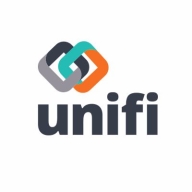

SSIS and Unifi are competing in the data integration and management category. Unifi seems to have the upper hand due to its advanced analytics and user-friendly interface, which offer comprehensive data insights despite higher costs.
Features: SSIS allows integration within Microsoft tools, enabling seamless workflows. It has strong data warehousing capabilities for handling large-scale ETL processes. Unifi provides powerful data visualization and real-time analytics for immediate insights, and it has the flexibility to handle varied data sources.
Ease of Deployment and Customer Service: SSIS benefits from robust support due to its integration with Microsoft, but deployment can be complex. Unifi offers cloud-based deployment, simplifying setup with scalable solutions. Its customer support is proactive, assisting with swift deployment and customization.
Pricing and ROI: SSIS generally involves lower upfront costs, especially for Microsoft-aligned organizations, and offers cost-effective scaling. Unifi demands higher initial investment but provides significant ROI through its analytics and adaptable solutions, justifying the cost as a strategic investment for analytics-driven businesses.


SSIS is a versatile tool for data integration tasks like ETL processes, data migration, and real-time data processing. Users appreciate its ease of use, data transformation tools, scheduling capabilities, and extensive connectivity options. It enhances productivity and efficiency within organizations by streamlining data-related processes and improving data quality and consistency.
The Unifi Data Platform breaks down the barriers of operational data silos and democratizes information across the enterprise. At the heart of the platform is a comprehensive suite of self-service data discovery and preparation tools to empower business users. Employing machine learning and artificial intelligence technologies, and optimized for the cloud, Unifi predicts what the business user wants to visualize and then connects the resulting data natively to the BI tool for fast, accurate results.
We monitor all Data Integration reviews to prevent fraudulent reviews and keep review quality high. We do not post reviews by company employees or direct competitors. We validate each review for authenticity via cross-reference with LinkedIn, and personal follow-up with the reviewer when necessary.